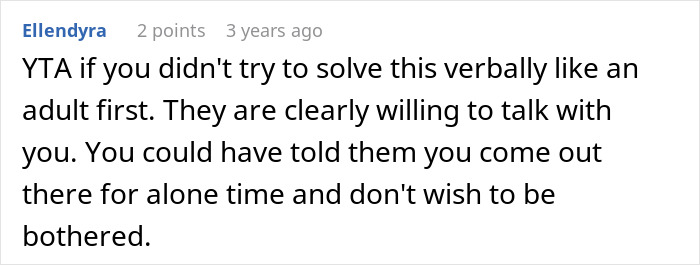Woman Wants Privacy At Home So She Puts A Divider In The Balcony Which Upsets The Neighbors

Having a good relationship with your neighbors can be tricky. You want them to be friendly and helpful, but not stepping over the line. One survey found that a whopping 81% of Americans value privacy from their neighbors. Some people even admitted to hiding from them.
This person had some chatty neighbors who would bother her every day after work on their joint balcony. To them, it may seem like they were only being social. But the woman quickly got tired of their chattiness and decided to put up a divider. When they got mad, she decided to ask whether her decision was so wrong.
A woman wanted to just chill in her balcony, but obnoxious neighbors wouldn’t let her
Image credits: RossHelen / Envato Elements (not the actual photo)
They would chat her up every day, so, to have more privacy, she installed a divider

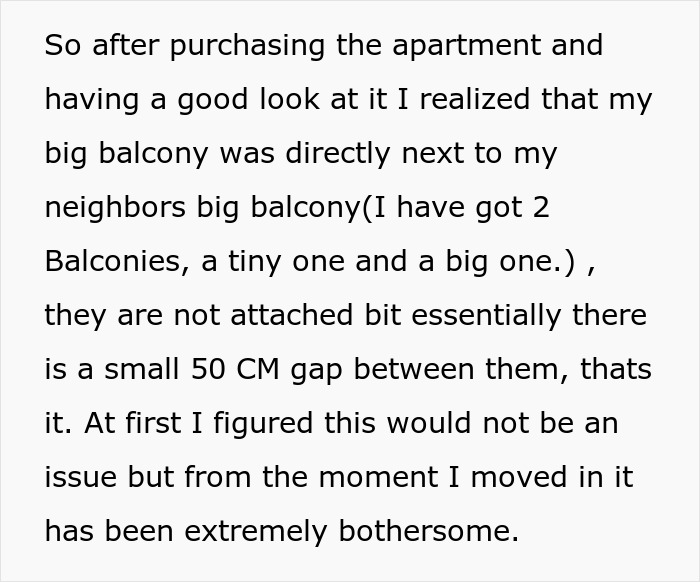
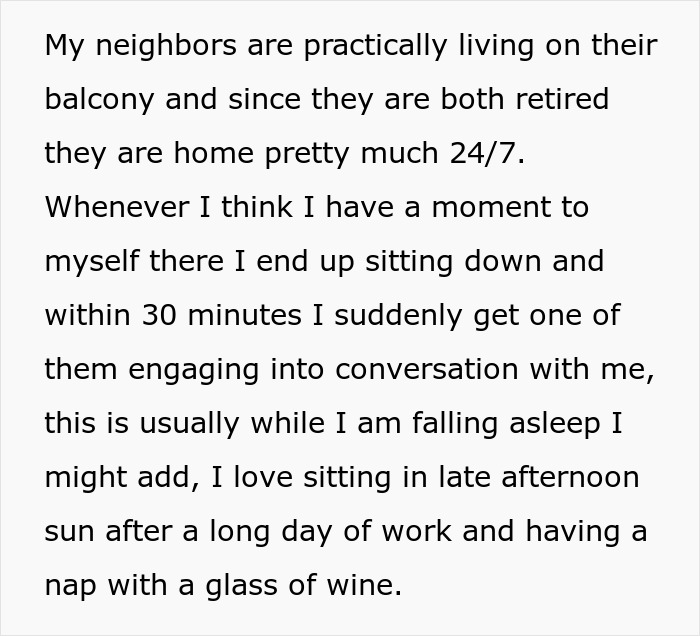
Image credits: peus80 / Envato Elements (not the actual photo)
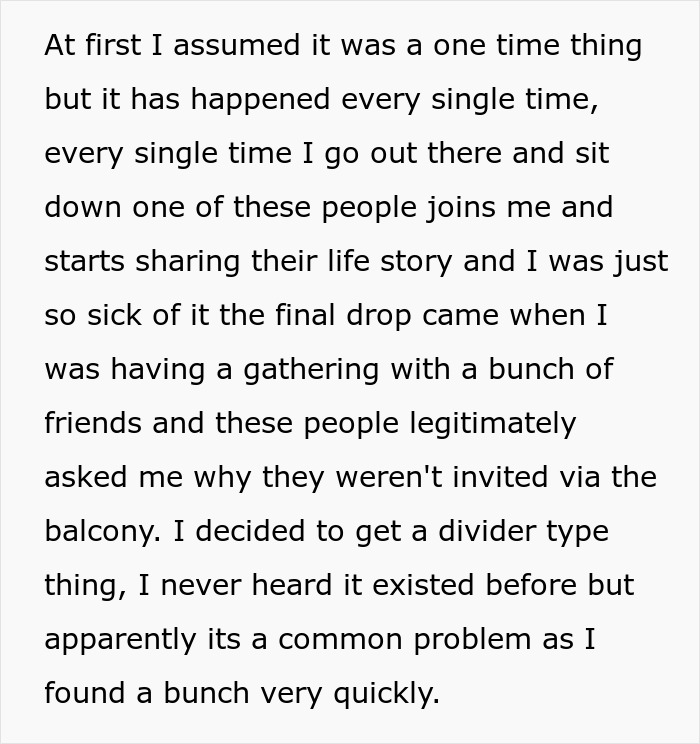
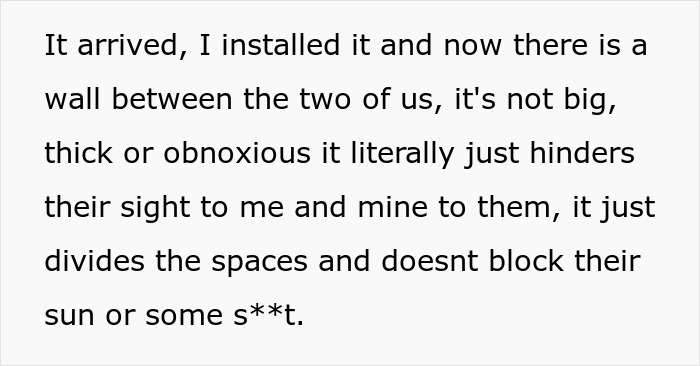

Image credits: Ok-Hat5039
Privacy from neighbors in a balcony can be both practical and stylish
Wanting privacy in your home is understandable, even when you’re outdoors in your balcony or in your yard. Some people like to live openly with the curtains open and no fences around their house. Yet others prefer their home to be a peaceful oasis, where no voyeurs can stare at you while you’re taking a nap.
The author in this story opted for a quick and simple solution with a basic privacy screen. Yet there are some other, more stylish but practical solutions. A similar option would be a divider of some sort: either a wooden trellis or a reeded screen. Both add texture and coziness to the space while providing privacy at the same time.
Another way is to go with fabrics. Draping it over the handrails or a lattice screen would make the balcony feel fully private, not to mention protect from the harsh rays of the sun. Curtains are also an option. Just as we use them on windows, we can also put them up in the balcony. The flowing movement of the curtains adds a little more style to the space compared to fabric draped over the rails or screen.
A third solution is for plant lovers: to build a privacy screen out of plants. People can play around with hanging plants or with big, lush greens that act as a natural privacy screen. And don’t have to be exclusively green; flower pots work super well on balcony rails. “Play with scale – don’t think small, just because your space is small,” James Dowsing-Reynolds, founder and designer at Dowsing & Reynolds, told Homes and Gardens.
Furniture can also act as a privacy screen: chairs, other seaters, or tables can be arranged so that you’re not face-to-face with your neighbors. A big curved chair is especially handy in situations like this. It acts as a privacy divider and as a super cozy sitting arrangement for when you need to curl up in a blanket with a good book.
All these methods can, of course, be mixed and matched. You can put up a latticed screen and let some climbing plants climb all the way up to the edge. Putting up smaller potted plants on a table also gives you a tad of privacy. The solutions are plenty, it’s up to the person to pick which appeals to them the most.
A home can be your retreat, but it shouldn’t become a fortress of solitude
Neighbors don’t have to be obnoxious for you not to want to socialize with them. Some people pick and choose their company very carefully. Others have social anxiety and just find it hard to engage in small talk with people they don’t know very well.
David Burton, a community development specialist with University of Missouri Extension, says there are four reasons why people don’t socialize with their neighbors as much as in the past. We’re too lonely, too busy, too focused on indoor entertainment, and have retreat mentality.
For the author in this story, it seems that it’s all about the latter. We want our home to be a retreat, a place where we can relax and where no one bothers us. But Burton cautions against it. ” Our home can be our safe place but using it as a fortress of solitude is not healthy,” he explained.
He warns that if people don’t start socializing with their neighbors more, it might lead to a loneliness crisis. We might be putting our social and physical health at risk by not wanting to be friends with ours neighbors. That’s the impact of reduced social interactions.
“Be intentional about being outside. Watch and speak to neighbors that you see. And take steps to learn and use the names of your neighbors,” Burton urges.
People justified the woman’s decision, saying that she has a right to privacy in her own home
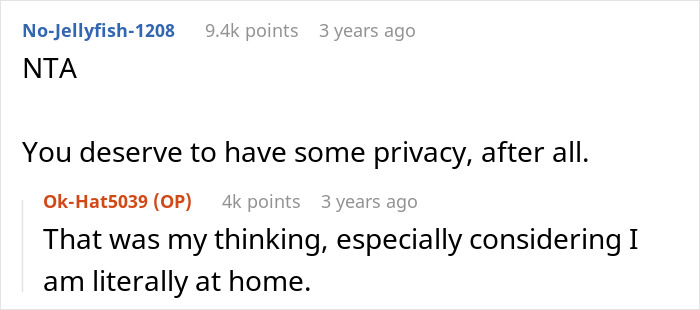

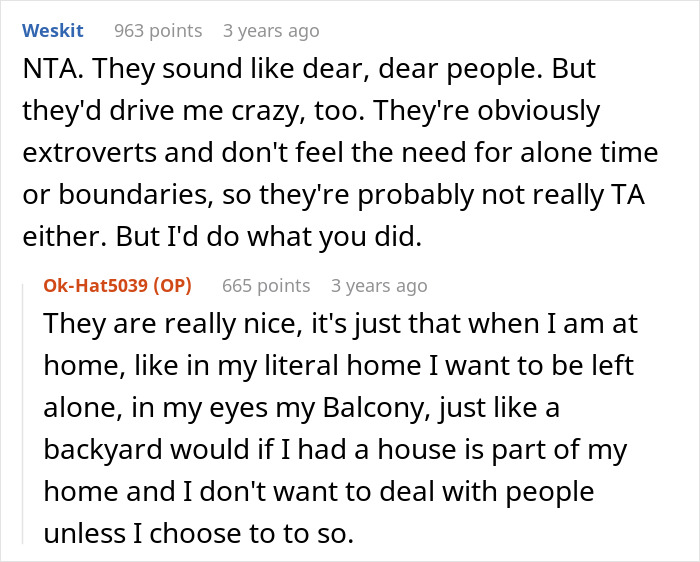
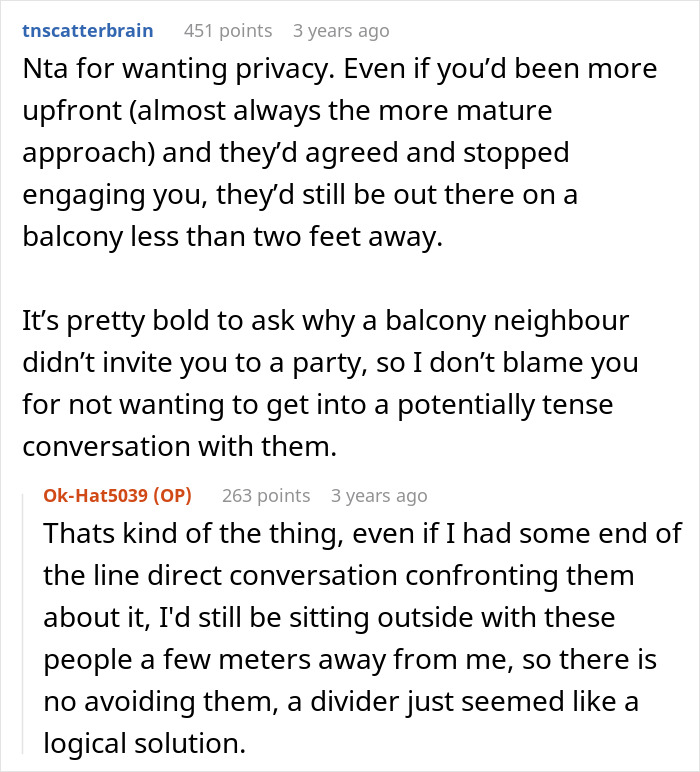

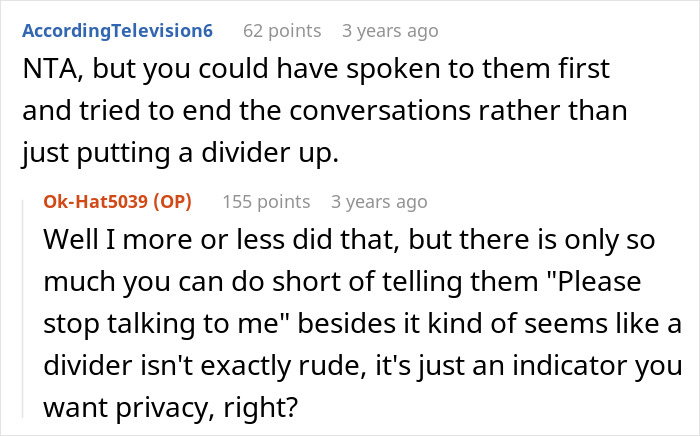

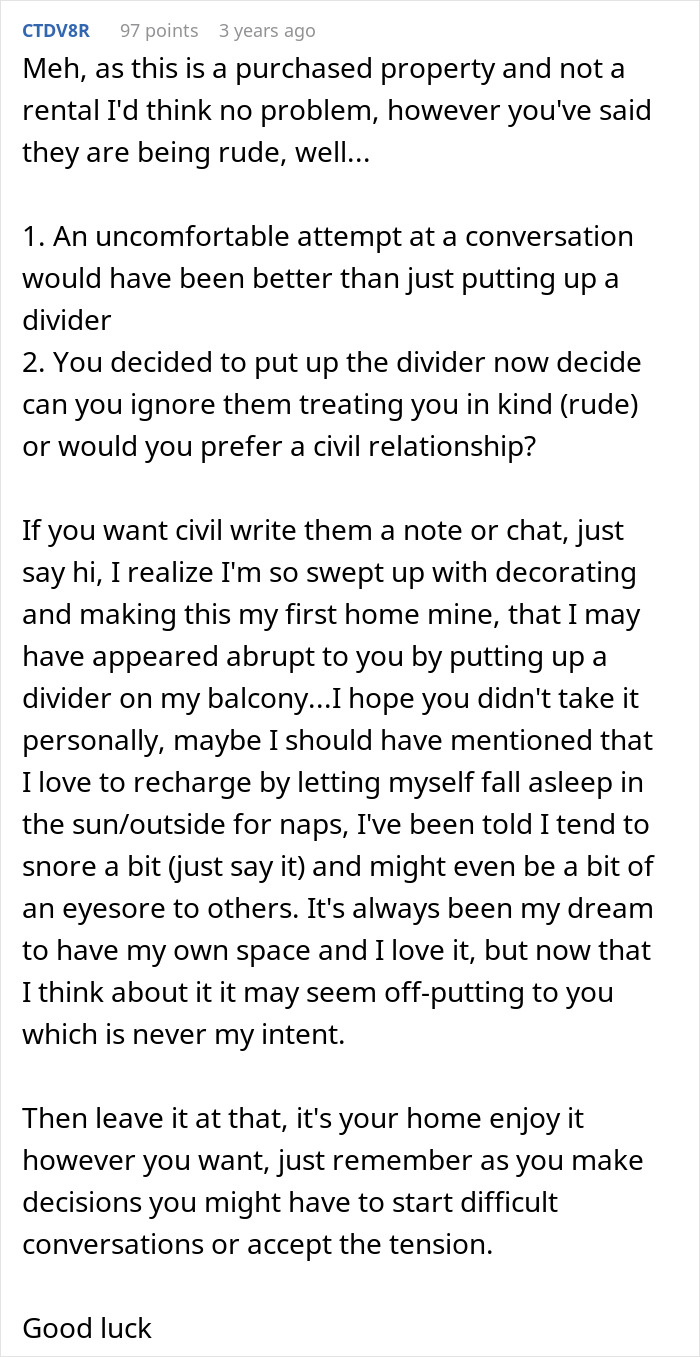
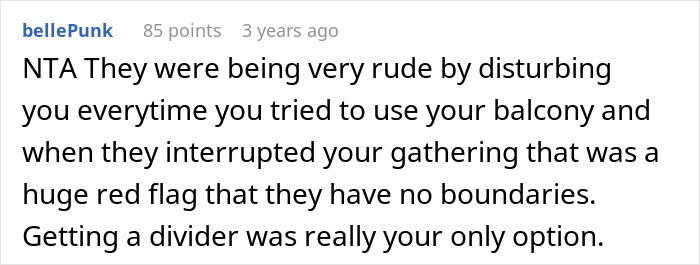


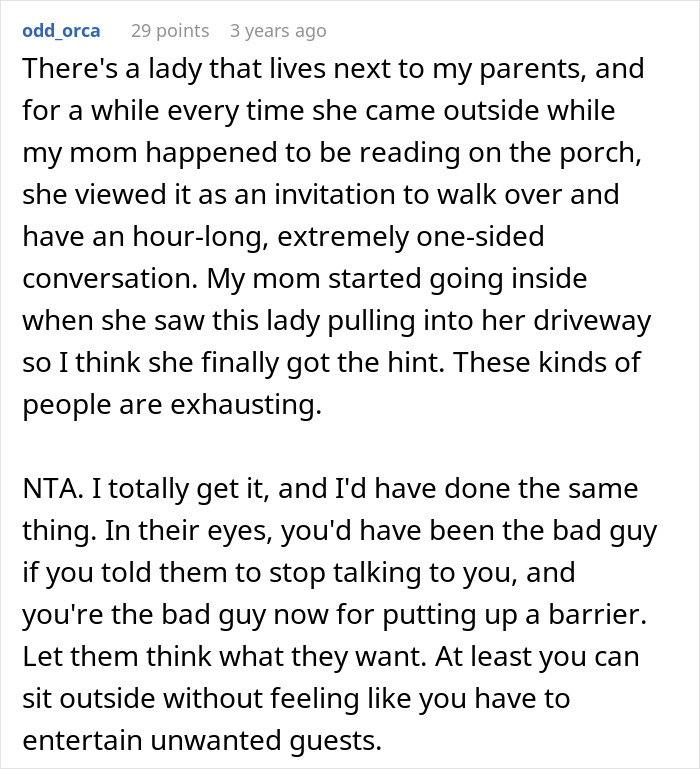


Others wondered why she just didn’t tell them she wants some privacy

